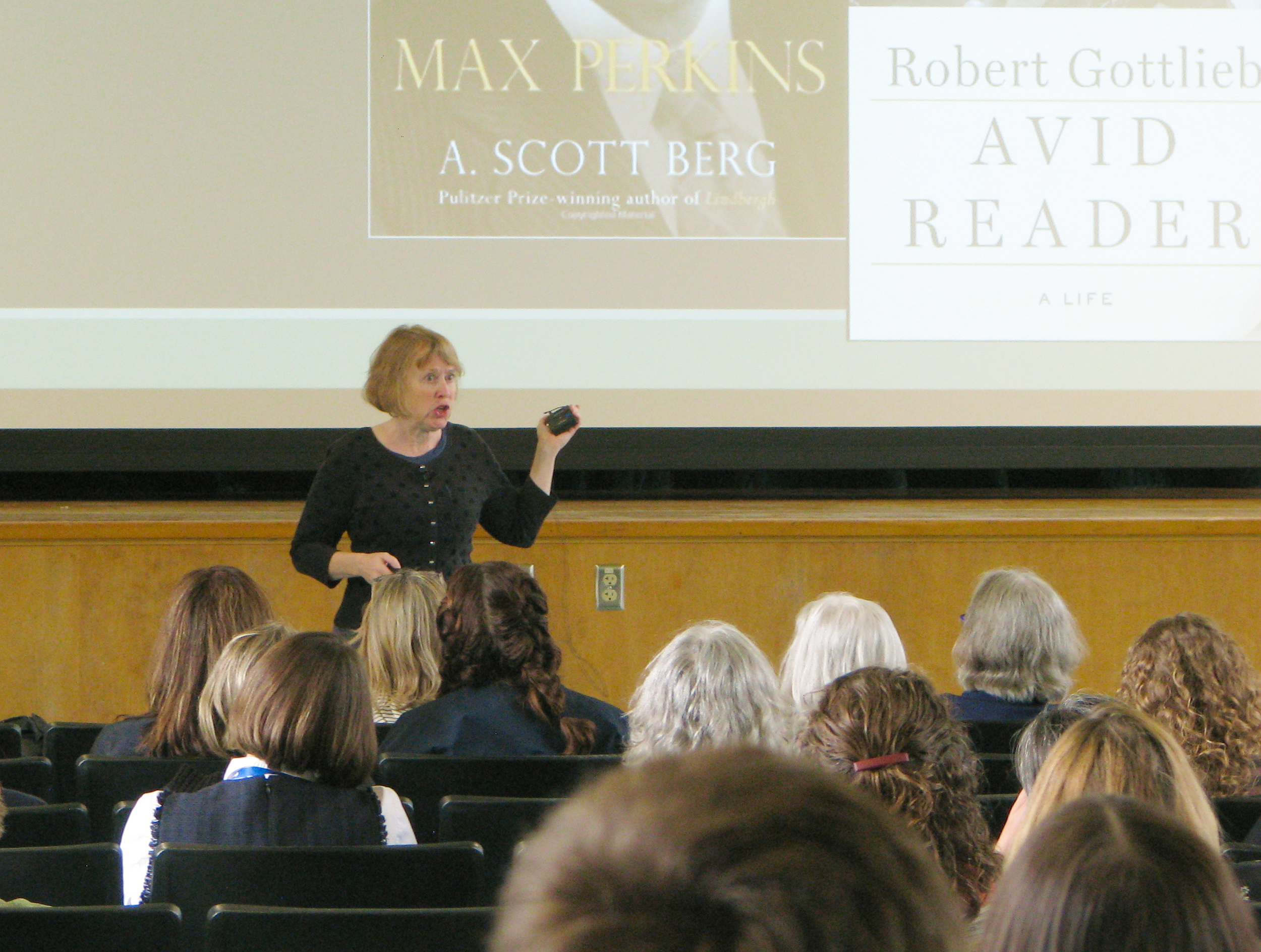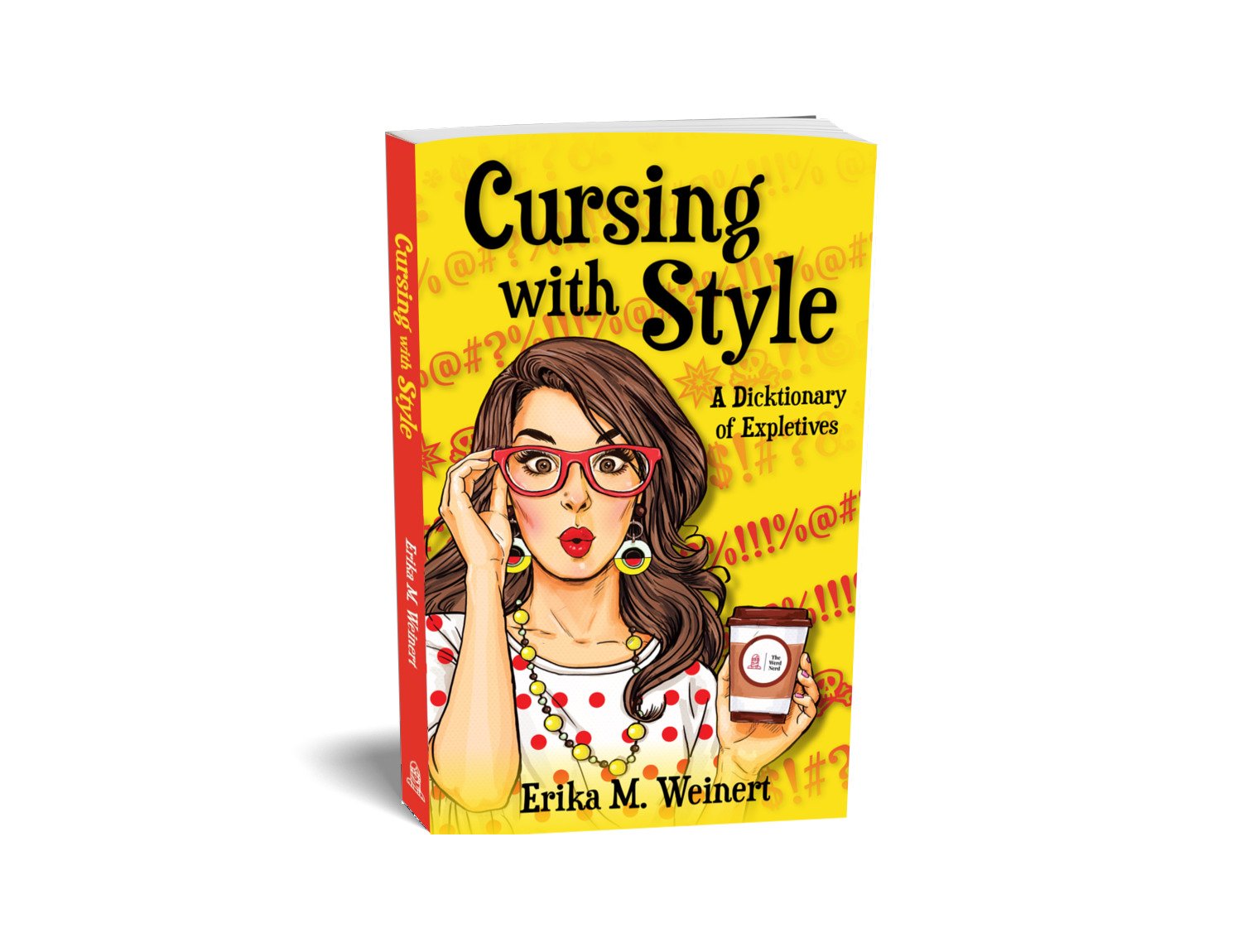
Editing Texts About, or For, Neurodivergent Kids and their Families
More writers than ever identify as neurodivergent (ND), and more writing than ever is about or for neurodivergent children and their families. The recent prominence of these texts is helping to build awareness of neurological differences in mainstream culture that is long overdue. Being ND means having a neurological difference like autism, ADHD, anxiety, dyslexia, or a combination of these diagnoses, as well as others. If you are asked to edit a book or piece about neurodivergence, you will be responsible for helping writers represent ND experiences as faithfully as possible to an audience with varying levels of knowledge and understanding. As an editor, you might wonder how you should approach this work, especially if you or your family are not neurodivergent (that you are aware of). Should you edit this work at all?

Presenting at Red Pencil with Joanie Eppinga
The deadline for submitting presentation proposals and ideas for Red Pencil 2023 has been extended to Sunday, October 16, so if you’ve got something you want to share with the editing community (or you have an idea you want to suggest someone else share, especially if they’re local!), please get in touch with our conference planning committee. In case you’re nervous about speaking in front of a large group, we want to assure you that Red Pencil is just about the friendliest group you could start with! I sat down with Guild member and past Red Pencil conference and ACES presenter Joanie Eppinga to chat with her about her experiences and advice about presenting.

Cursing with Style with Erika M. Weinert, The Werd Nerd
Most editors of fiction (and probably at least a good portion of nonfiction editors, too) have had at least a few unusual expletives come across our desks. But if you start to feel like your latest style sheet would be bleeped on network television, you might need a style guide that covers more inventive swearing than Merriam-Webster and the Chicago Manual of Style are equipped to handle. You might need something like Cursing with Style: A Dicktionary of Expletives, available now, by Guild member Erika M. Weinert.
Content Warning: Since the subject matter is all about swear words and how to use them, this blog post contains significant amounts of adult language, as well as some slurs. We are discussing the words and their uses in a professional context, but if you don’t want to see words that would be censored on network television, consider skipping this blog post.

No Child Grows Up Wanting to Be an Editor?
Back in June, our volunteer coordinator, Ivonne B. Ward, emailed the Guild’s discussion list with a link that resonated with her: a blog post by John McIntyre titled “The accidental editor.” The main point of the post was summed up with the sentence "No child grows up wanting to be an editor.” Ivonne agreed, as far as her own unpredictable career path went, and asked the discussion list, “Did you always know you wanted to edit/be an editor?”
Since this conversation was extremely popular, and a number of the responses compelling, we thought we would reprint a few highlights here on the blog (with the permissions of their authors, of course) and share a couple of additional thoughts on the subject.

The Neurodivergent Editor: Finding Self-Compassion with Irene Doukas Behrman
Being neurodivergent brings a unique challenge to editors. While there’s no “right” way to be neurodivergent, some prefer remote or freelance jobs where there can be fewer distractions and they can control certain factors, like noise or light levels. But remote and freelance work can also be overwhelming to those struggling to keep up in a neurotypical workforce. With the pandemic bringing forth more remote jobs than ever before, and society shifting its understanding of how the brain works—leading to more people being diagnosed, especially among women—I have been increasingly interested in learning about what it means to be neurodivergent, especially as a freelancer.
So I was excited to be able to talk to Irene Doukas Behrman, an editor at Euro-Med Human Rights Monitor, over email about her experiences being neurodivergent and working remotely.

A Guide to Tricky Citations for Academic Authors & Editors
All academic writers know that they need to properly cite their sources. Whether you’re directly quoting from a text or speech, paraphrasing the thoughts of another scholar, or reprinting an image or table, you need to cite the original author in order to give them credit and provide breadcrumbs for readers to learn more.
While the Chicago Manual of Style’s (CMOS) guidelines for common bibliography and note citations are generally well known by scholarly writers, there are a number of other tricky formats that often confuse academic authors.
In this brief guide, assembled from recommendations by my expert team of citation editors at Flatpage, I’ll introduce you to the hardest types of citations for academics to get right using CMOS and provide you with sample notes so you can get them right next time!

Thank You, Volunteers!
Twenty-five years ago, a small group of freelance editors gathered in a Seattle living room hoping to build a network of colleagues and community for editors in the Pacific Northwest. They—and hundreds of other editors over the years—gave their time and energy to support this group and build it into what we now know as the Northwest Editors Guild. To this day, the Guild relies on volunteers for most of its operations, and you can be a part of that tradition.
April is National Volunteer Month, and we give huge thanks to Guild volunteers past and present who donated a little or a lot of their time, expertise, and effort. The Guild literally would not exist without you!

What is a StetPet? Your Animal Editorial Assistant Questions Answered
Every Wednesday on the Northwest Editors Guild’s social media pages, you’ll find a dog with a goofy grin or a cat conveniently sitting on a keyboard. They aren’t editors, per se, but they are the trusty animal “assistants” to editors from all over the world. Some remind their editors to take a break while others physically impede any actual work getting done by sitting in strategic locations.
They are our StetPets, and we’ve been featuring them consistently since the summer of 2017 on the Guild’s Twitter, Facebook, and LinkedIn pages. Virtual fame and ear scratches from the greater editorial community are included.
The #StetPet hashtag has many editor and writer fans, but we often get questions from people who just discovered StetPets. Here are some of the most common StetPet queries answered for you and your animal assistants.

Meet the 2022 Board
Our all-volunteer board of directors changes a little bit every year, with most members serving a two-year term on the board that ends in February. This year we're saying farewell to 2021 board members Jesi Hanley Vega, Laura Whittemore, and Alison Cantrell, and welcoming new board member Megan Christy. MariLou Harveland, Kris Ashley, Sarah Peterson, Laura Shaw, Alicia Ramos, Erica Akiko Howard, and Ivonne Ward continue their service.
Instead of our usual formal biographies, the board this year decided to answer some fun questions as their introductions.

Member Survey Results
It's been an interesting two years since our last Member Survey, hasn't it?
We’re so pleased that almost 200 of you (approximately 50% of the Northwest Editors Guild’s membership) took the time to participate in the 2021 Member Survey, especially amidst the ongoing upheaval of the Covid-19 pandemic.
The 2021 Member Survey asked about many different measures of our professional lives. We've pulled out a few things that we thought were the most interesting takeaways to share.
